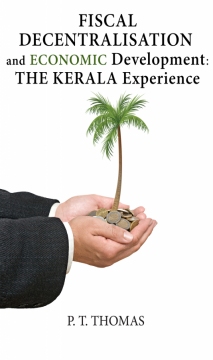
-
Discover books
- Bynge Tamil Stories
- Trending this week
- New Releases
- Free Shipping
- Indian Languages
- Xpress Publishing
- Bestsellers See All
Notion Press Picks
-
Books By Genre
- For Writers
-
For Writers
-
Indie Author Championship
-
Challenges
Writing Contests
- Get Started

"It was a wonderful experience interacting with you and appreciate the way you have planned and executed the whole publication process within the agreed timelines.”
Subrat SaurabhAuthor of Kuch Woh Pal -
P.T. Thomas
PT Thomas is a human development economist, with a degree from St Thomas College, Thrissur, Kerala, and has a doctorate from Cochin University of Science and Technology. He was an associate professor (1980–2010) in the Postgraduate Department of Economics, St Thomas College, Thrissur. For the last twenty years he has worked on the human impact of macroeconomic policy. He received the “Award of Emeritus Fellowship” from the University Grants Commission for the period 2013–15. A keen researcher, he has published two books –Land Market, Housing and Urban Growth Process and Education andRead More...
PT Thomas is a human development economist, with a degree from St Thomas College, Thrissur, Kerala, and has a doctorate from Cochin University of Science and Technology. He was an associate professor (1980–2010) in the Postgraduate Department of Economics, St Thomas College, Thrissur. For the last twenty years he has worked on the human impact of macroeconomic policy. He received the “Award of Emeritus Fellowship” from the University Grants Commission for the period 2013–15. A keen researcher, he has published two books –Land Market, Housing and Urban Growth Process and Education and Social Mobility : The Kerala Experience. This book is the revised version of Emeritus Fellowship Report, Fiscal Decentralisation and Economic Development: The Kerala Experience, submitted to the University Grants Commission, New Delhi.Read Less...












